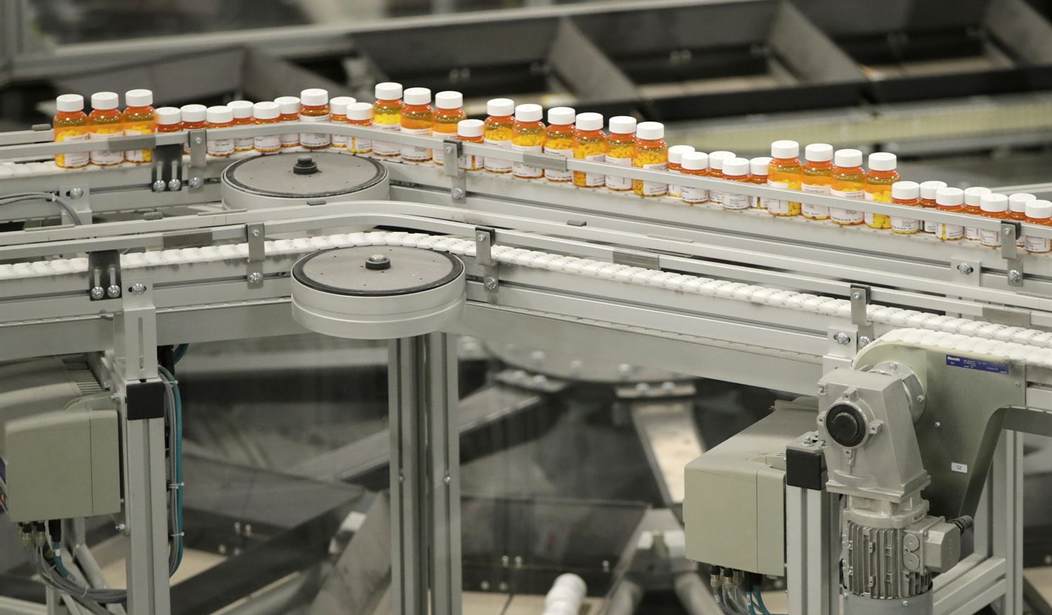Democrats claim their socialist-style drug price controls will only lower prices for pharmaceuticals, with minimal impact on innovation. Growing evidence suggests otherwise.
Recently, pharmaceutical company Seagen announced it abandoned additional research into its new drug therapy Padcev, largely because of the “negotiation” provisions in the Inflation Reduction Act. The therapy showed great promise in clinical trials, with recent results suggesting Padcev, when used in combination with another immunotherapy drug, reduced mortality for some bladder cancers in half.
Seagen wanted to conduct additional research to support expanded uses for Padcev in earlier, less-invasive bladder cancers. But Seagen could be forced to “negotiate” the price of the drug in a few years’ time—and by “negotiate,” the federal government means accept price controls Washington dictates as a take-it-or-leave-it proposition. Company CEO David Epstein noted that FDA approval of Padcev for other cancers “would come so late in the life cycle”—that is, right before government price controls kick in—“that there will be no economic return from” engaging in future research on Padcev.
Epstein’s comments only echo those of other pharmaceutical companies, many of whom started curtailing, or re-orienting, drug development activities within weeks of the Inflation Reduction Act’s passage last year. The cumulative effects of these individual decisions will have major consequences for American patients.
Recommended
A recent Health Affairs piece highlighted some ways the Inflation Reduction Act’s price controls will skew drug development. Because manufacturers have a defined period of time following FDA approval before the federal government can “negotiate” prices, they will attempt to maximize the financial returns they can make within that time frame.
In some cases, this dynamic could lead to drugs coming on the market later. For instance, consider a hypothetical drug designed for lung cancer that may have applications to breast cancer as well. A manufacturer may decide to delay its application for FDA approval for the lung cancer indications unless and until it determines the results of its clinical trials for the breast cancer indications. That way, it can apply for approval to treat both conditions at the same time, thereby maximizing its return in the window before drug “negotiations” kick in.
Of course, such a scenario means that lung cancer patients will have to wait longer than they otherwise would have done to receive access to a new therapy. This scenario amounts to the inverse of the situation Seagen faced with Padcev. In that case, the company had already received FDA approval for one indication of the drug, and with the clock ticking down to “negotiation,” couldn’t make a good economic case for doing additional research to support approval for other indications.
The shorter window to maximize returns also places an emphasis on therapies that do not require longer clinical trials, particularly trials conducted after FDA approval—when the clock to “negotiation” starts ticking. Companies will have fewer incentives to study longer-term outcomes in patients, likely leading to fewer studies looking at the effects of drugs over time, and fewer studies examining real-world effects—for instance, whether a drug that helps manage diabetes symptoms actually reduces mortality risks over years or decades.
The old saying goes, there’s no such thing as a free lunch. Democrats passed their “negotiation” provisions in the Inflation Reduction Act claiming the law would not harm innovation for patients. Both the examples to date, and a common-sense understanding of economics, indicate the law will have far more unintended consequences than advertised.
Mary Vought (@MaryVought) is a Senior Fellow at the Independent Women's Forum and the Founder of Vought Strategies.

























Join the conversation as a VIP Member